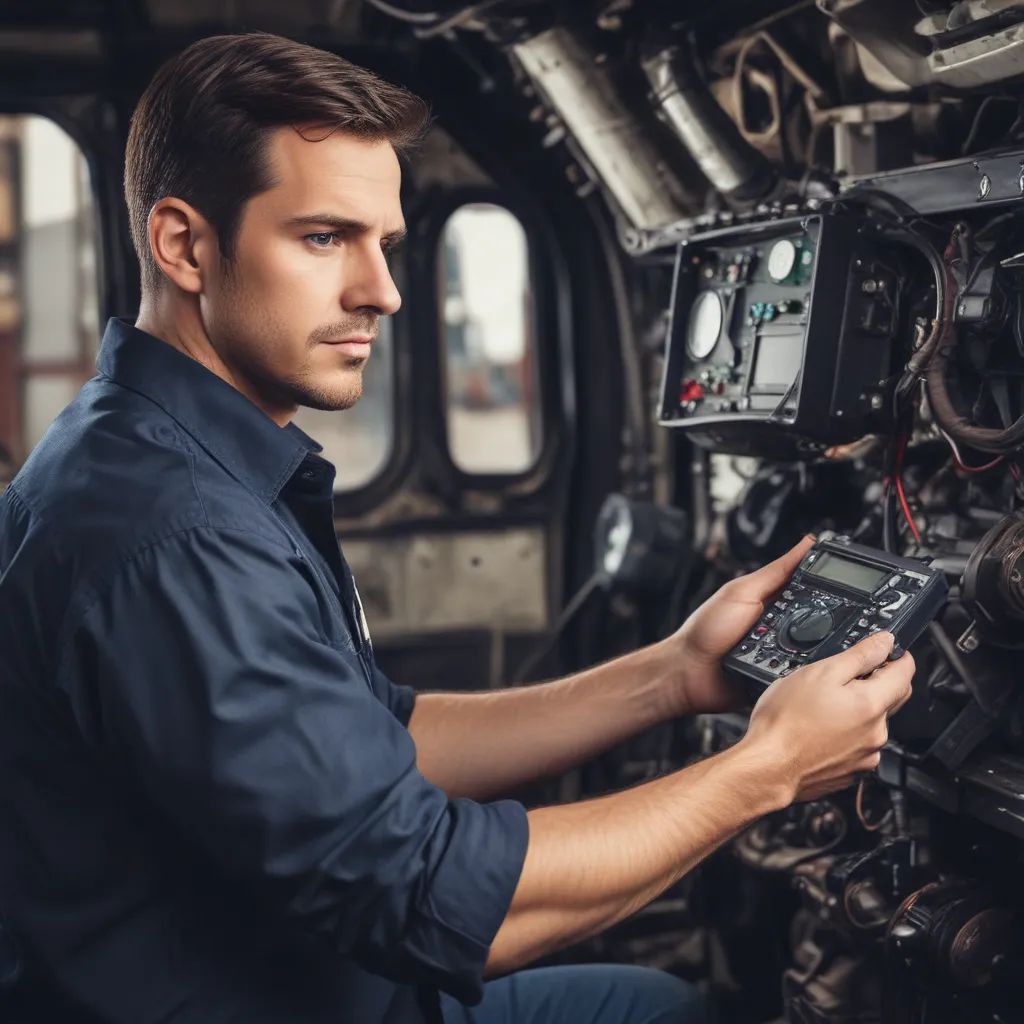
The Frustrating Days of Guesswork
Ah, the good old days of automotive repair – or were they? Cast your mind back to a time before the advent of on-board diagnostics (OBD). As an RV and fleet vehicle repair technician, I would spend hours, days even, trying to track down the source of a mysterious problem. It was a true test of my mechanical prowess, scouring the engine bay, poking and prodding, listening intently for any clues. But more often than not, I’d end up feeling like a modern-day Sherlock Holmes, stumped by the case of the elusive car gremlins.
The trouble was, back then, the inner workings of a vehicle were a veritable black box. Sure, I could visually inspect components, test voltages, and replace parts willy-nilly. But without a clear roadmap to the problem, I was essentially flying blind. And let me tell you, the customer’s frustration was palpable as the repair bill steadily climbed, with no end in sight.
The Transformative Power of OBD
Then, like a beam of light cutting through the automotive darkness, came the introduction of on-board diagnostics. Suddenly, the vehicles I worked on were spilling their secrets, providing a digital breadcrumb trail to the root of any issue. No more guesswork, no more parts shotgunning – just efficient, targeted troubleshooting.
The beauty of OBD is that it taps directly into a vehicle’s central nervous system, continuously monitoring the performance of critical systems and components. When something goes awry, the onboard computer springs into action, logging a diagnostic trouble code (DTC) that points me in the right direction. Gone are the days of hunting and pecking; now, it’s a simple matter of plugging in a scan tool, interpreting the code, and zeroing in on the problem.
Maximizing the Benefits of OBD
But the benefits of OBD don’t stop there. As an RV and fleet vehicle repair technician, I’ve discovered that leveraging this technology can save my customers a significant amount of time and money. For starters, the ability to quickly diagnose issues means fewer trips to the shop and less downtime for their vehicles. Instead of wasting precious hours chasing phantoms, I can get right to the heart of the problem and have them back on the road in no time.
Moreover, the precision afforded by OBD allows me to be more judicious with parts replacement. Gone are the days of shotgunning parts, hoping to stumble upon the culprit. Now, I can surgically replace only the components that need attention, without unnecessary waste or added expense. This not only keeps repair costs down but also helps to preserve the overall integrity and longevity of the vehicle.
The Future of OBD and Beyond
Of course, the evolution of on-board diagnostics hasn’t stopped there. As technology continues to advance, the capabilities of these systems have grown exponentially. Newer vehicles are equipped with more sophisticated OBD systems that can not only pinpoint problems but also provide predictive maintenance information. By monitoring the long-term health of a vehicle’s components, I can help my customers stay one step ahead of potential issues, scheduling proactive maintenance before costly breakdowns occur.
And the future holds even more promise. Imagine a world where your RV or fleet vehicle can automatically schedule its own service appointments, order replacement parts, and even autonomously drive itself to the repair shop. While that may sound like the stuff of science fiction, the groundwork is already being laid, with connected car technologies and the rise of artificial intelligence. As an RV and fleet vehicle repair technician, I can’t wait to see what the next chapter holds for on-board diagnostics and the industry as a whole.
The Indispensable Role of OBD
In the end, the importance of on-board diagnostics in the world of automotive repair cannot be overstated. It has revolutionized the way I and my fellow technicians approach our work, transforming what was once a frustrating guessing game into a streamlined, data-driven process. By tapping into the wealth of information provided by a vehicle’s OBD system, we can quickly identify and resolve issues, saving our customers time, money, and the headache of protracted, inconclusive repairs.
So, the next time you bring your RV or fleet vehicle in for service, take a moment to appreciate the invaluable role that on-board diagnostics plays in the process. It’s the unsung hero of the modern automotive world, quietly and efficiently keeping our vehicles running smoothly, mile after mile. And as for me, I’ll continue to embrace this technology, using it as a powerful tool to provide the best possible service to my customers. After all, who needs a crystal ball when you’ve got OBD on your side?
